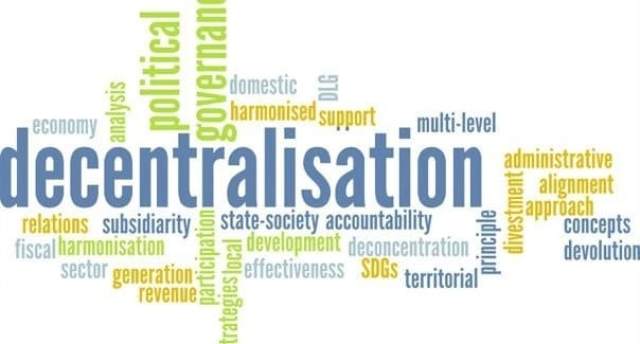 From Local Government in Ghana
From Local Government in Ghana
The impact of the Covid-19 pandemic is most acutely felt in the world’s cities where populations live in near proximity to each other and interact frequently at work, public transport and leisure activities. Nowhere is this more so than in the big cities of developing countries, with their large informal settlements with limited access to water and basic sanitation, let alone advanced healthcare. It is here where local government and community-based organisation have a vital role in combatting Covid-19.
On 17 April former British Secretary of State for Health, Jeremy Hunt, told the BBC that ‘One of the reasons testing took too long to ramp up (in the UK) is because it was all done too centrally…this is surely something we should trust local government to help us with’.
The UK has one of the most centralised government structures in the Commonwealth. Yet many UK councils have taken decisive to support and enforce central government responses to the pandemic and ensure that vital local service like refuse collection are maintained. In this they have been helped by a central allocation of an extra £ 3.2 billion.
In developing countries financial resources are scarcer. The Uganda government has only a budget of $80 million to fight Covid-10 of which $16 million is for local government. Kampala alone has 60 per cent of its almost 1.5 million population living in informal settlements, highly prone to virus spread. Some additional support is being provided by development agencies like the EU which has earmarked €20 billion to its partners worldwide and the UN Capital Development Fund, which is providing $400,000 extra funds to areas like Northern Uganda, where some one million refugees are crammed together.
Unlike the UK, many Commonwealth countries like Uganda have highly decentralised local government structures which have proved their worth in combating past pandemics like HIV-AIDs. Kampala City Council has now direct responsibility for surveillance, detection, management and controlling Covid-19 and even small rural councils have well-established responsibilities. The same is the case in neighbouring Rwanda, where local government has significant powers as was shown in responding to the recent Ebola scare. Even with limited resources local government can do a lot locally.
Across the Commonwealth councils are taking special measure to warn their public about Covid-19, by information leaflets or factsheets as on Cape Town’s website. They are facilitating safety measures at the workplace or on public transport, and assisting enforcement of social distancing and confinement, for example by closing parks and municipal facilities. Above all they are ensuring continuation of vital municipal services, which in many countries include health and social care, especially for vulnerable groups. In cities like Karachi and Mumbai this involves working with slum dwellers organisations and community organisations supporting the urban poor. In the UK, Cambridge is doing food deliveries to homeless shelters and London has rehoused street-dwellers in unused hotel rooms.
Local government also has an important role is in working with local business, especially SMEs, to mitigate the impact of Covid-19 on jobs and the economy, and to plan for post-Covid-19 recovery. The current lockdown measures are having a devasting effect on local economic activity and business. Again, it is developing counties, where much economic activity is concentrated in urban centres, which is badly hit, not only business, but also local government which has seen significant reductions in locally-generated income. There must be a focus on local economic development or LED, led by councils working with business to attract new investment or tourism, a strategy already well-established in countries like Ghana or South Africa.
The solution to post-Covid19 recovery, as a much as with its mitigation, lies in a multi-governance approach, where local, provincial and central governments work together in equal partnership. Thus the South African Local Government Association sits on the country’s High Command Council and in London the Mayor participates in the national security council, COBRA.
This partnership approach is inherent in the implementation of the UN’s 2030 Agenda with its focus on the localisation of the Sustainable Development Goals, the SDGs, at local community level, whether SDG 3 on health or SDG 8 on economic growth. It is also set out in the Commonwealth Aberdeen Principles on Local Democracy and Good Governance, incorporated in the Commonwealth Charter. In addition, the Commonwealth Local Government Forum, CLGF, is sharing best practices in local government approaches to Covid-19 and has already been working with the EU and DFID in support of LED, so critical to economic recovery.
In the Commonwealth, as elsewhere, what is needed to combat Covid-19 and its aftermath is are bottom-up, not top-down, development strategies: An approach which recognises the key value of local government as a vital community leader.
Dr Carl Wright is Secretary-General Emeritus, Commonwealth Local Government Forum and a member of the Round Table Editorial Board.



